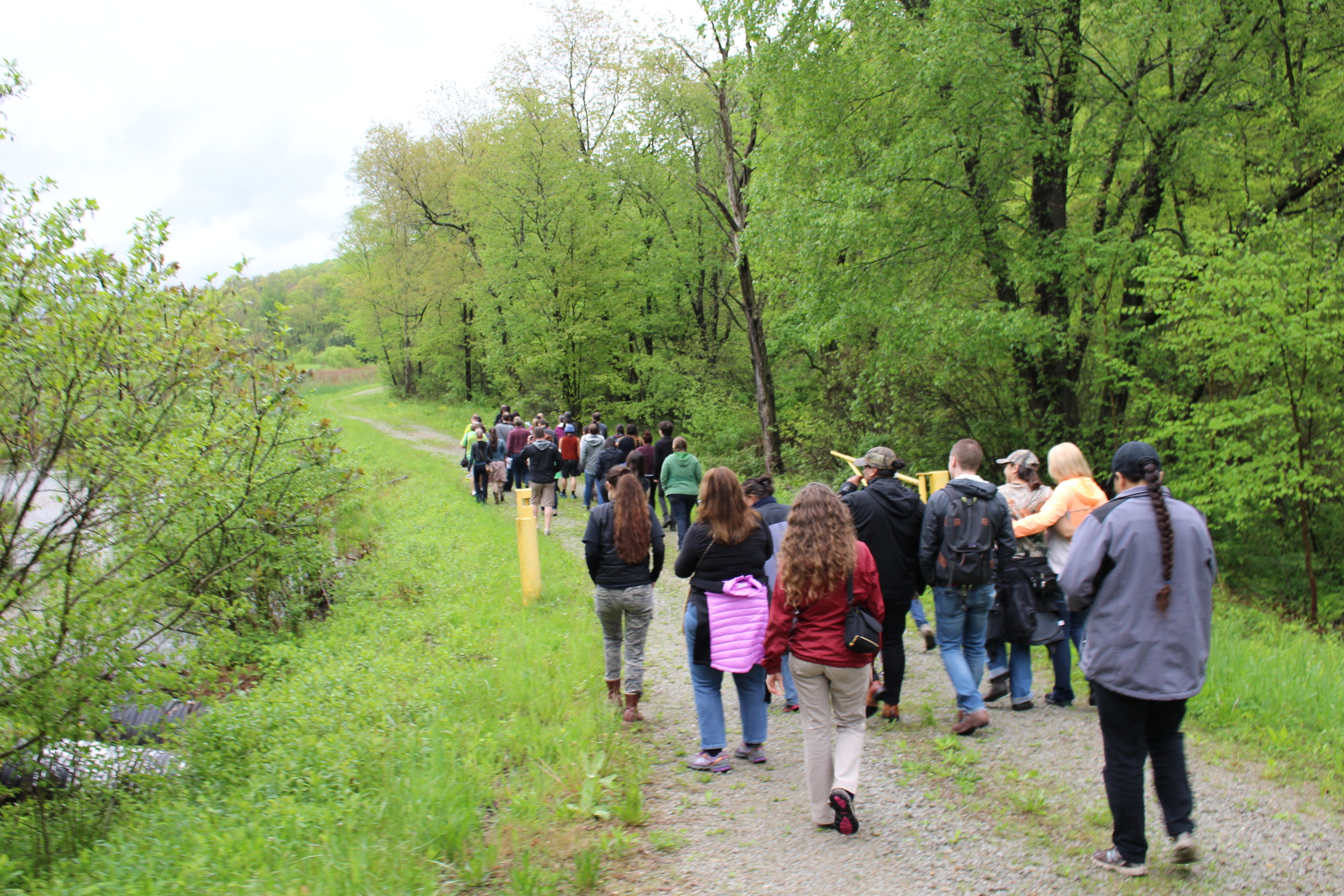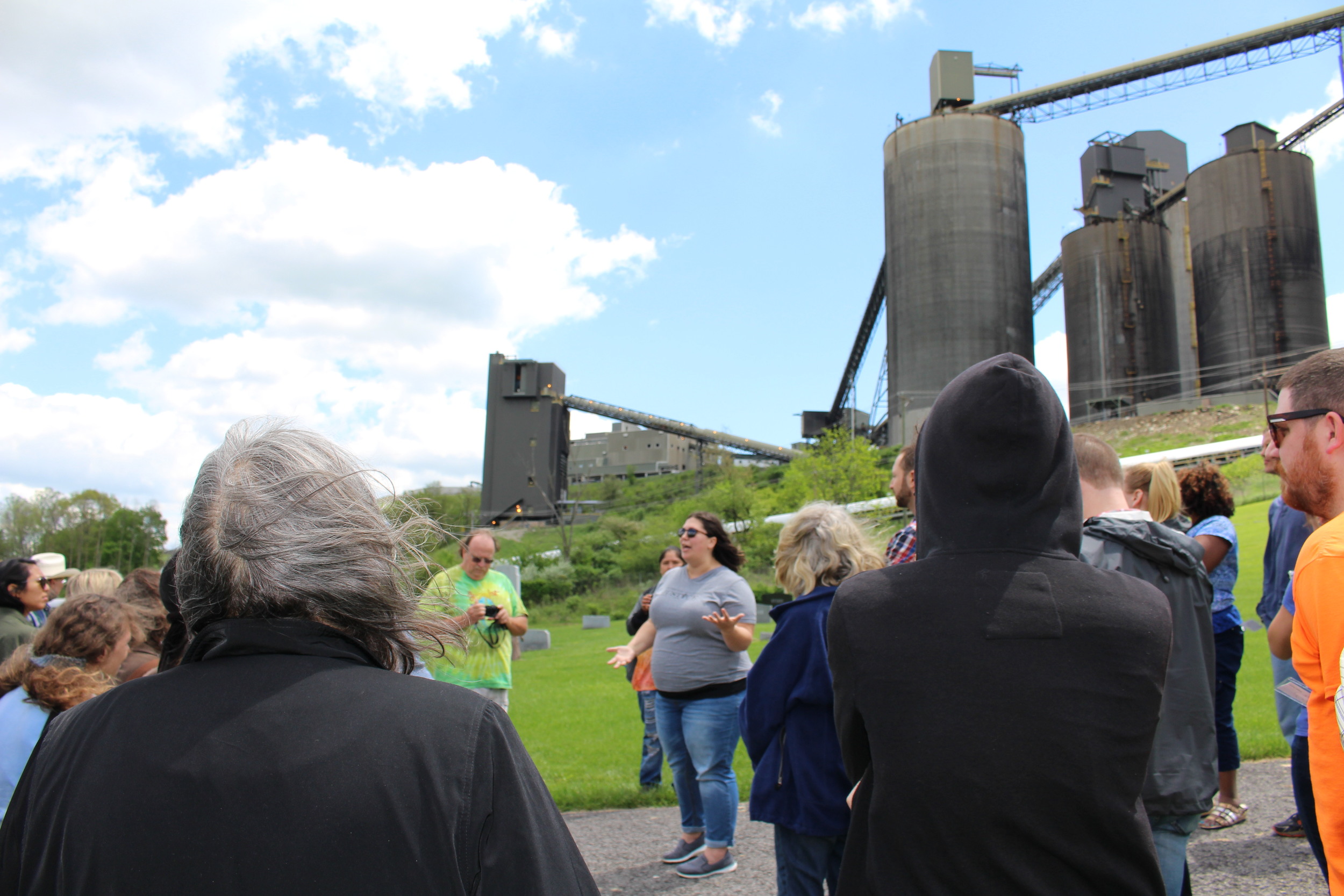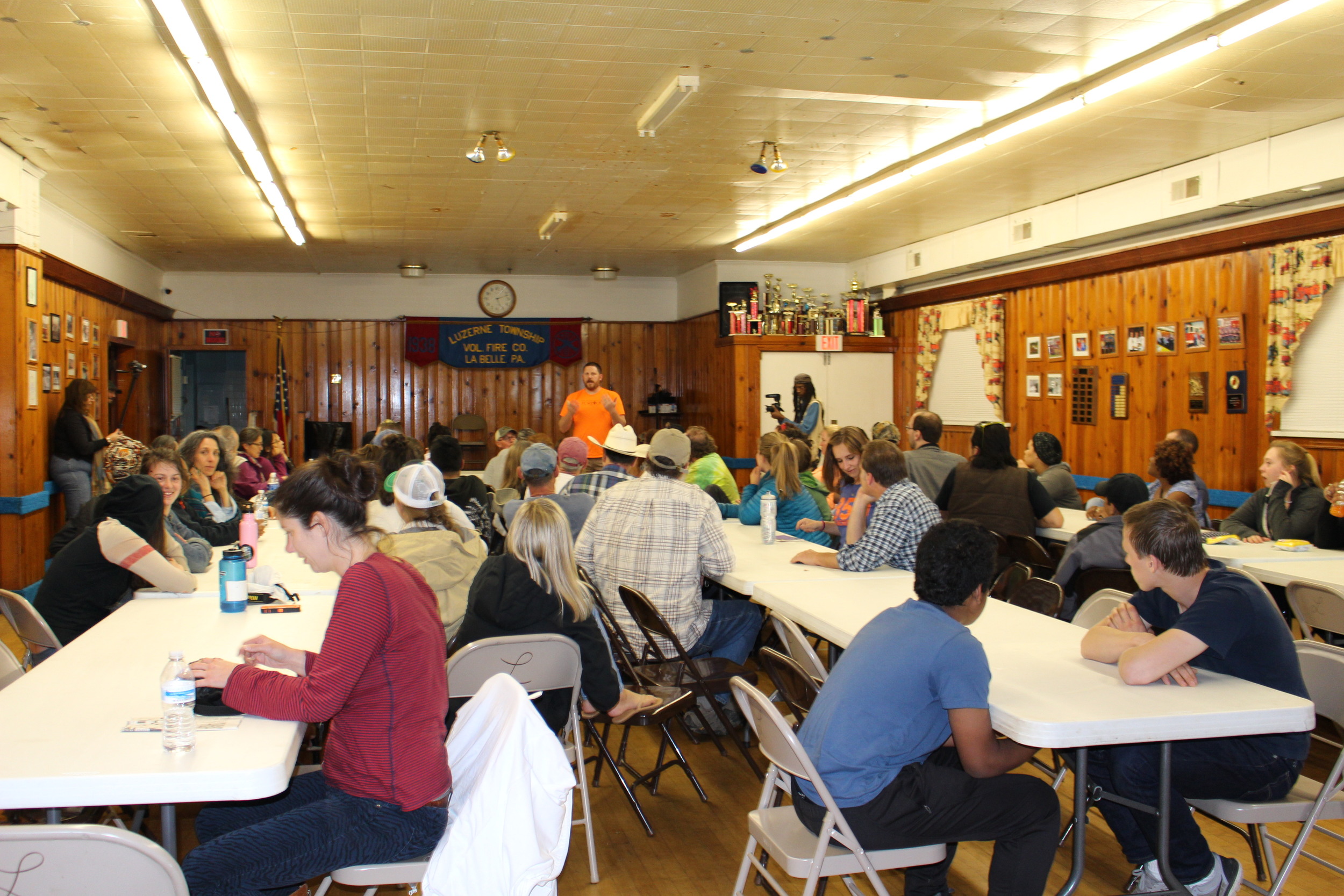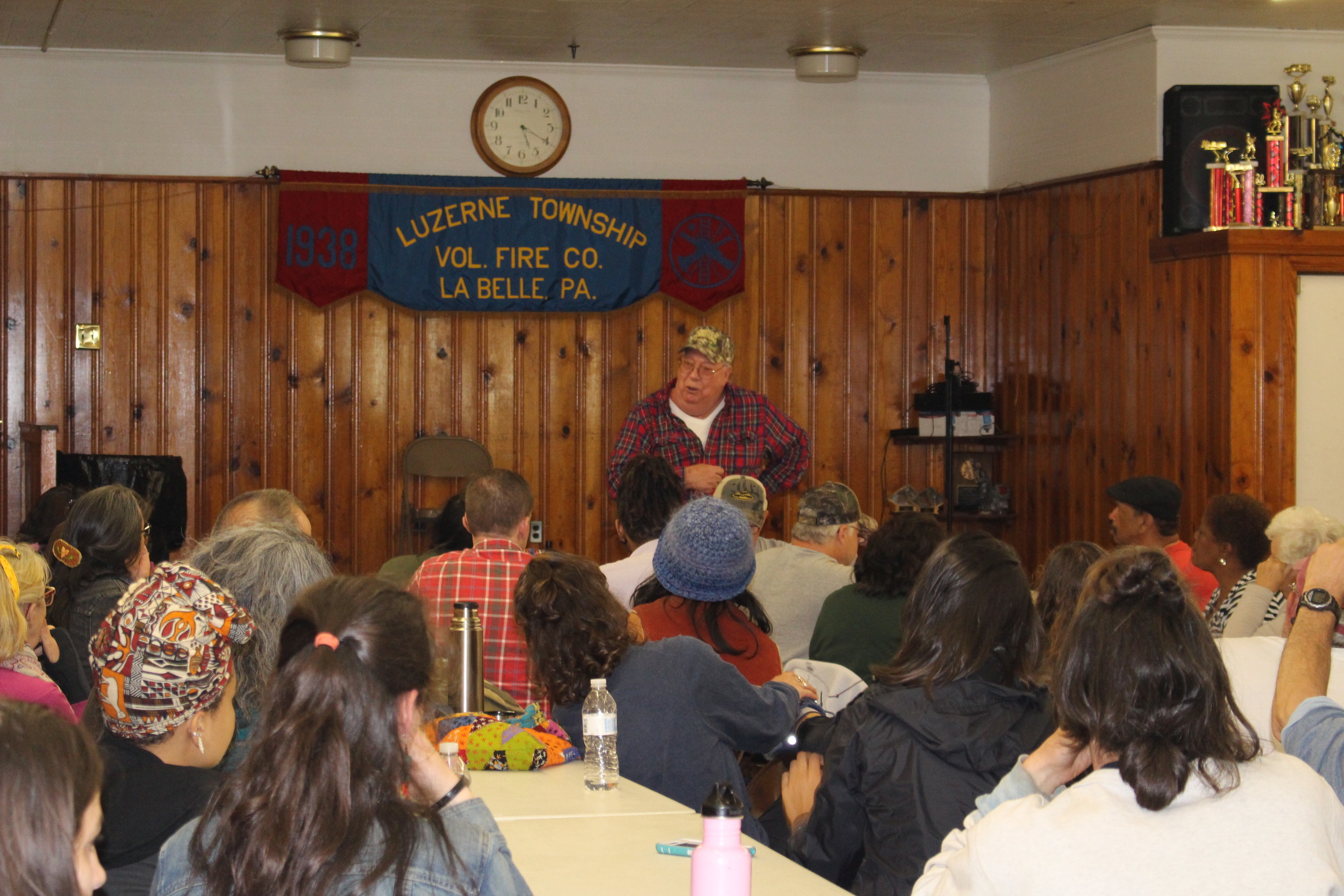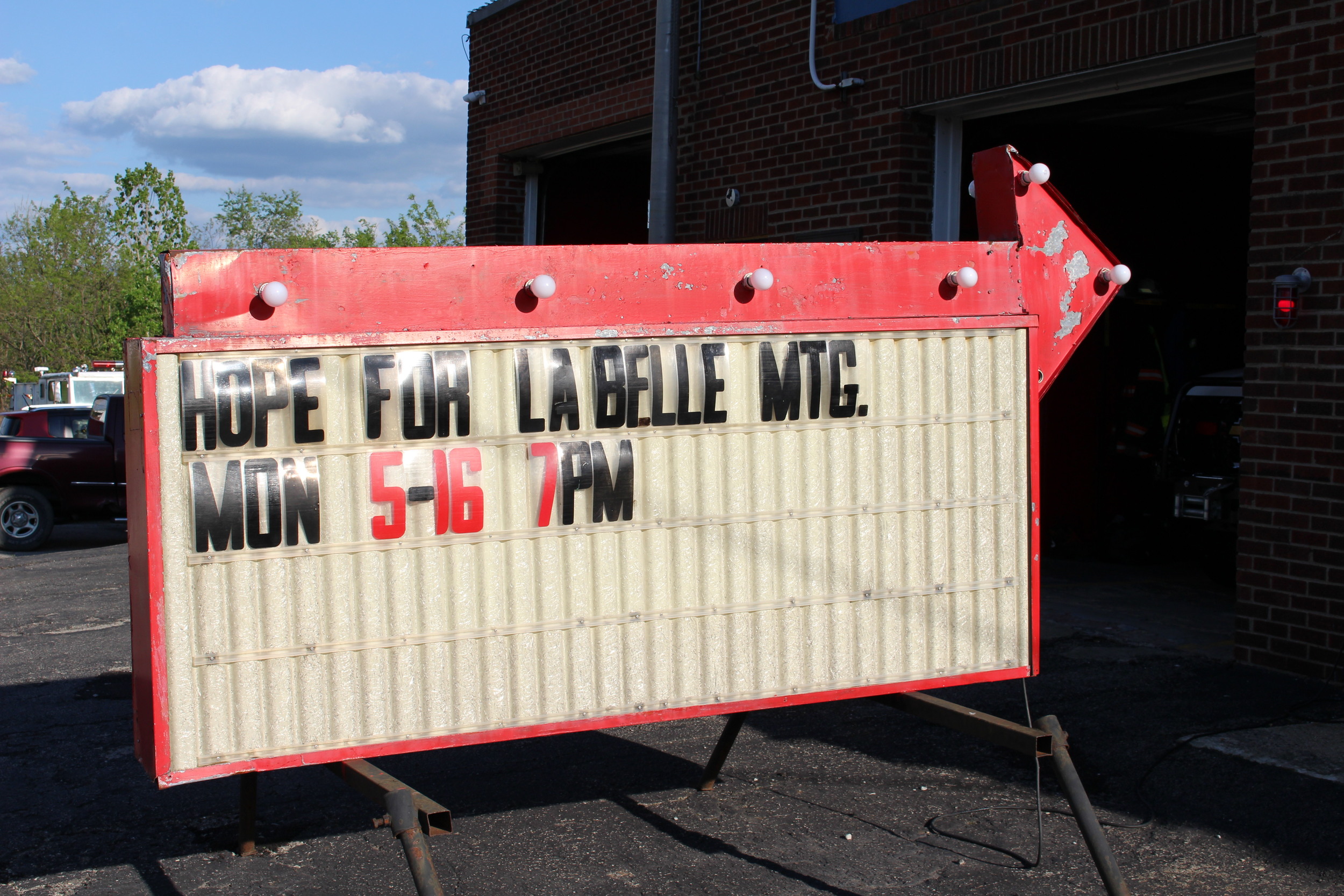A few weekends ago, the Center for Coalfield Justice hosted the Extreme Energy Extraction Collaborative Summit in Southwestern Pennsylvania. Frontline community members, indigenous folks, grassroots groups and big green groups fighting extreme energy extraction from around the US and Canada came together to share skills and strategize about working together across many extraction and social justice issues.
We welcomed the group on the first day by providing a tour of extraction infrastructure in southwestern Pennsylvania. We traveled to abandoned mine sites, the largest coal processing plant in the country, and heard stories from coalfield community members at Ryerson Station State Park and folks impacted by coal ash in LaBelle, PA. After the tour, many attendees of the summit were touched by the stories shared and expressed that their communities are experiencing very similar struggles.
Through break out groups and large discussions during the summit several topics were discussed, but the themes that stand out were that we are all in this struggle together, and that funding inequity in the movement is preventing real social change. While the national narrative around the climate fight is that we are winning, many communities on the frontlines are still seeing mining, fracking, and other extraction projects approved. Those communities are still sick and getting sicker, and the systems that allow this activity are not changing. Listening to all these similar struggles all too familiar to those communities CCJ works with was motivating to hear. Despite all the adversity we are up against, people are not backing down and giving up. We are still showing up for each other and pushing forward for justice. That is winning. We must continue to stand up for what is right and build leadership in our communities to join us in these struggles.
All through these conversations, we kept realizing what makes our struggles difficult is the lack of resources devoted to those communities most impacted and grassroots community organizing. This recent article in the Huffington Post, “Why the Environmental Movement is Not Winning” hits the nail on the head, highlighting that most of the environmental funding goes to large organizations, without established connections to frontline communities facing the environmental injustice daily. Until we begin putting resources into frontline communities and value the voices from those most impacted the environmental movement will struggle.
Out of this summit people have formed long lasting relationships and will continue to collaborate with each other. At CCJ, we have learned so much from the perspective of indigenous people and even though we don’t have large populations of native folks in southwestern Pennsylvania, we need to remember those that were displaced from this region and respect their culture of protecting the environment in our work. Being an effective ally to native peoples is central towards any achievement of justice in the coalfields.

